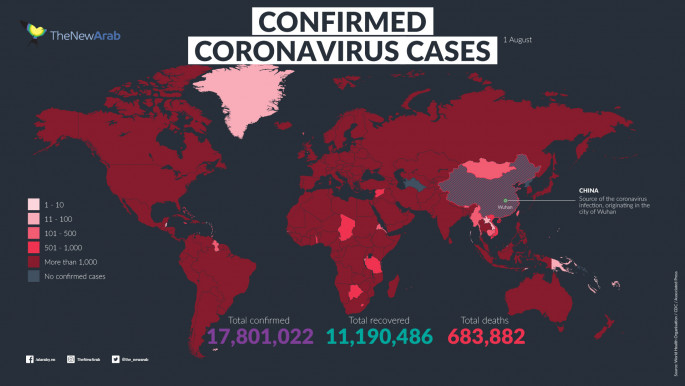OPEC predicts virtually no growth this year
OPEC predicted virtually non-existent oil growth in 2020 amid the oil industry's coronavirus-related slumps, the association stated in its monthly report, following worldwide losses amid fears over the pandemic and an oil price war.
In its report, OPEC estimated it will see an increase of only 60,000 barrels a day in 2020, a drop of 920,000 bpd from its previous forecast, it said in a monthly report.
"Considering the latest developments, downward risks currently outweigh any positive indicators and suggest further likely downward revisions in oil demand growth should the current status persist," OPEC said in a statement.
The report's release follows last week’s collapse of a output-cutting pact between OPEC and non-member producers led by Russia.
Read more: A tale of two outbreaks: How Gulf countries succeeded where Iran failed on containing coronavirus
The 13-member OPEC cartel regularly convenes with non-members led by Russia over how to influence oil prices.
Meanwhile, stock markets in energy-rich Gulf states tumbled Thursday with Saudi shares down 3.0 percent.
Saudi Aramco dipped 2.4 percent and ended the week down 12.1 percent as the energy giant prepares to announce its first annual earnings on Monday.
Dubai Financial Market dived more than 8.0 percent at close on the last trading day of the Muslim week. Abu Dhabi shares dropped 7.4 percent.
Stocks in gas-rich Qatar dropped 4.5 percent, while bourses in Bahrain and Oman were down 3.6 percent and 2.6 percent, respectively.
The stock market in Kuwait was closed as authorities announced a shutdown of government offices for two weeks and cancelled international flights in a bid to prevent the spread of the coronavirus.
All seven bourses ended the week with heavy losses, led by Dubai which was down 17.4 percent.
Agencies contributed to this report.
Follow us on Facebook, Twitter and Instagram to stay connected



